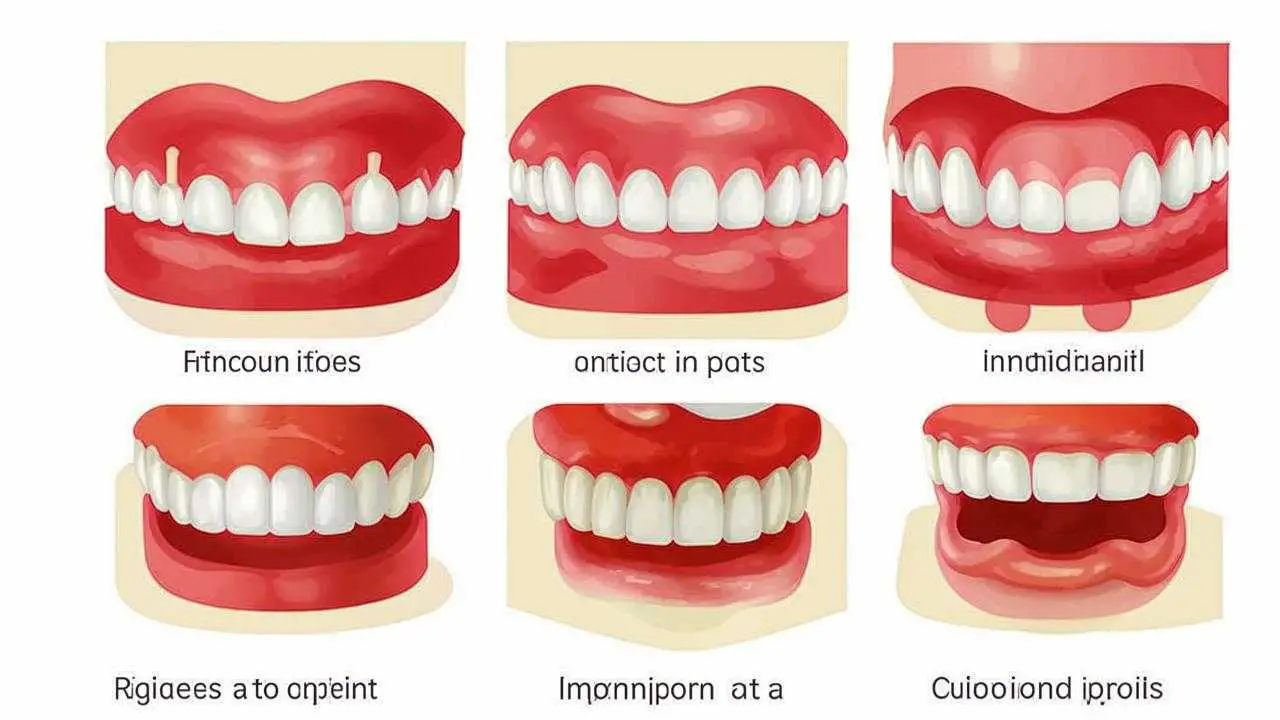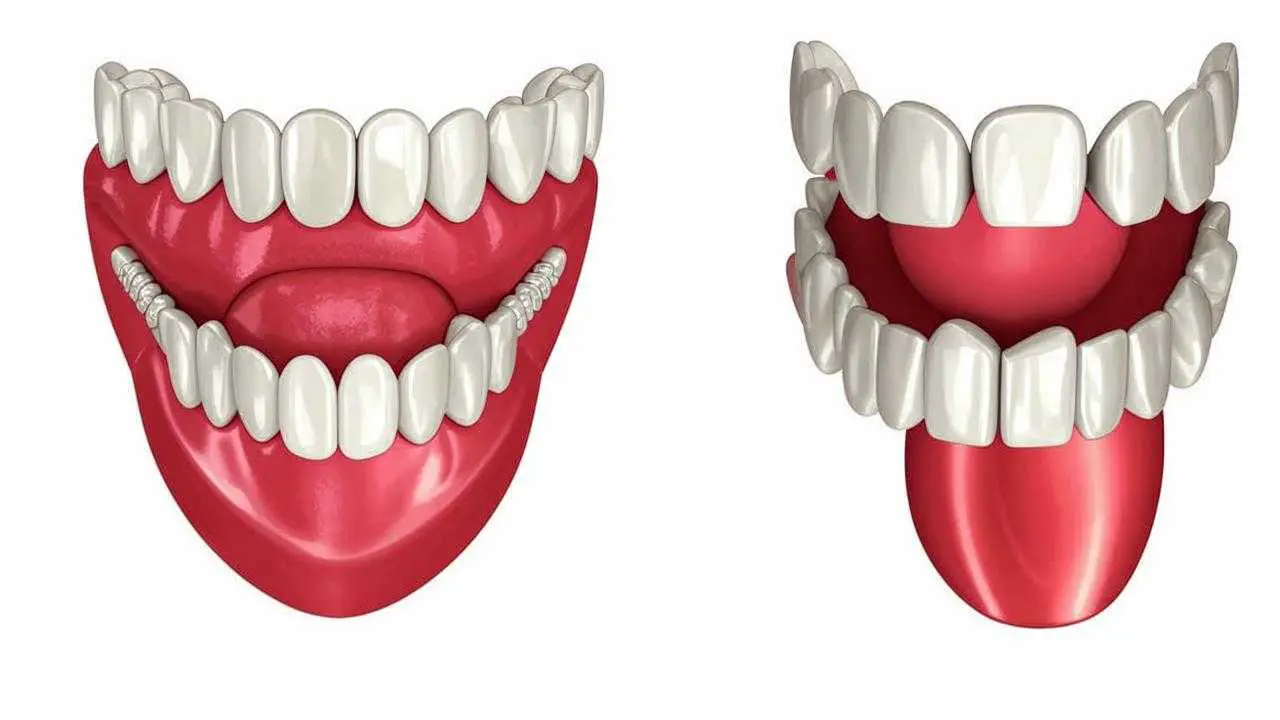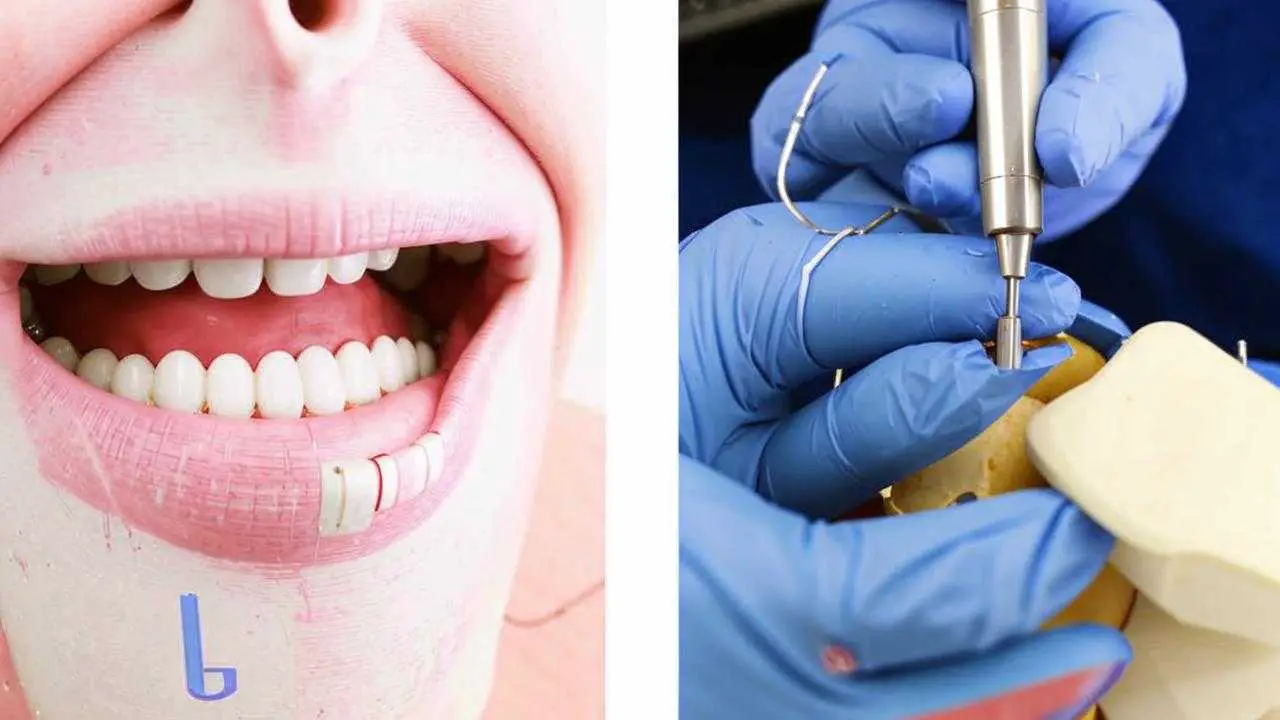Læsetid ~ 6 min Antal aflæsninger: 123356
The prosthetics are complete. Behind are left casts, fitting. It’s just a matter of getting used to your new jaw. It turns out that this is not so easy. Any removable construction is perceived by the body as a foreign body. It takes time for the body to start accepting the removable jaw as its own. How do I get used to removable dentures?
The dentist necessarily warns the patient about the reaction to the denture:
- increased salivation;
- nausea;
- urges to vomit;
- tension of the cheeks and lips;
- impaired diction;
- difficulty chewing.
All attention is focused on the foreign body in the mouth. It is difficult to fight the urge to remove the denture.
In some cases, there are atypical reactions to dentures. You should see a doctor immediately if:
- there is redness and swelling where the dentures come into contact with the dentures;
- there are wounds on the gums, ulcerations;
- it hurts to swallow;
- a burning sensation in the mouth.
Signs of allergy to dentures
These may be signs of an allergic reaction to the materials of the structure.
How long it takes to get used to dentures
Dentists distinguish 3 phases of adaptation:
- The first phase is irritations. And although doctors mean irritation of the nerve receptors, the name of the phase as best as possible conveys the patient’s condition. Irritation and the desire to pull out a foreign object are the 2 main feelings of the first day. To overcome them helps psychological mood and any activity, preferably bringing pleasure.
- The second phase is a partial inhibition. Then comes the reward for patience and persistence. Restoration still interferes, but not so much. Salivation decreases, nausea subsides. The cheeks and lips are less tense. Chewing function is restored. This phase takes about 5 days.
- The third phase is complete inhibition. Diction is normalized, chewing no longer causes discomfort, there is no sensation of a foreign body. The patient feels discomfort when the jaw is not in place. Adaptation is complete.
On average, it takes 10-30 days to get used to dentures.
Factors affecting the adaptation period
Individual characteristics of a person, his psychotype and desire, affect how quickly he can get used to removable dentures.
Other factors include:
- How well the design is fixed in the mouth. If the restoration does not adhere well to the palate, it causes constant discomfort. It’s hard to get used to the denture. It moves out, damages the mucous membranes.
- Are there any pain sensations. It is difficult to feel the artificial jaw as your own, when you constantly feel pain.
- The design of the prosthesis. It is easier to get used to the braces than to the plates. It will take longer to get used to an upper denture.
- The quality of denture fabrication. The gag reflex will not go away if the distal (back) edge is too long and irritates the palate. A poorly fitted restoration rubs the gums, causing discomfort when chewing. Such a design needs to be corrected.
Getting used to removable dentures is much faster if it is not your first denture. Usually, it takes 3-5 days.
How to quickly get used to dentures
Simple recommendations can help you get used to all 3 phases of dentures much faster. However, it should be remembered that the main thing is psychological attitude. It will help you to bear discomfort more easily and fight the temptation to remove the dentures. Visualizing a new smile, imagining changes in appearance and life, thinking about what problems the new jaw will solve, contribute to emotional and physical relaxation and accelerated adaptation. This is especially true for the upper jaw, because it is more difficult to get used to a denture with a palate. It takes up a lot of space, overlaps the taste buds, and gets in the way a lot.
Accelerate the habituation to the denture will help:
- Diet. In the first days after installation of the restoration, it is better to avoid solid food. Porridge, pureed soups, cottage cheese and yogurt will help you get through the most difficult first few days until chewing function is restored.
- Slow chewing. Be sure to engage both sides of the mouth to distribute the load evenly.
- Adhesive medications. Creams and gels such as Corega (Corega) help to better fix the jaw while the muscular apparatus gets used to the restructuring.
- Reduced physical activity on the jaw. At first, it is better to cut food into pieces, avoid biting off.
- Talking and reading aloud. Diction after dentures will recover faster if you talk a lot. The more you practice, the faster the phonetic apparatus will adapt to the new state. You can slowly count up to 100. Read prose and poetry, gradually increasing the pace. Talk to people close to you.
Dentists’ advice: for the period of habituation do not remove the construction at night. This also contributes to accelerated adaptation to dentures.
What to do if
- Nausea due to dentures. When nausea attacks, it is recommended to make frequent swallowing movements. Peppermint lollipops help well. They are resorbed, but in no case do not chew.
- A strong gag reflex is observed. Recommendations include the same lollipops and deep calm breathing. Relaxation comes faster if the exhalation is longer than the inhalation. For example, inhale for a count of 4 and exhale for a count of 6. You can fill your mouth with salt water. It does not need to swallow, just hold it for a while and spit it out. If nothing helps, you need to see a doctor. He will either make a correction, or prescribe special medicines.
- A lot of saliva is secreted. This is a temporary phenomenon, it will pass in 1-2 days. And this is where candy comes to the rescue, which can be sucked for a long time. The brain will associate salivation with the candy, not with the artificial jaw.
- The dentures are chafing. You need to go to the dentist to have an orthopedist make adjustments. Do not file the design yourself, it can lead to the breakage of the restoration. Before visiting the dentist, the denture should not be removed for at least 3 hours so that the dentist can see the places where the restoration is rubbing.
Care
Any surface in the mouth becomes covered with pellicle, a microbial plaque, after eating. Deposits can irritate the mucosa, provoke bad breath, stain with pigments. Therefore, orthopedic restorations need careful care:
- mechanical cleaning with a brush and water;
- use of therapeutic and preventive toothpaste;
- avoiding whitening pastes;
- regular use of antiseptic solutions.
Adjustment of the denture
Getting used to dentures takes a maximum of a month, while the aesthetic and functional effect lasts for years. The right attitude will help you to adapt to the restoration as quickly as possible.


